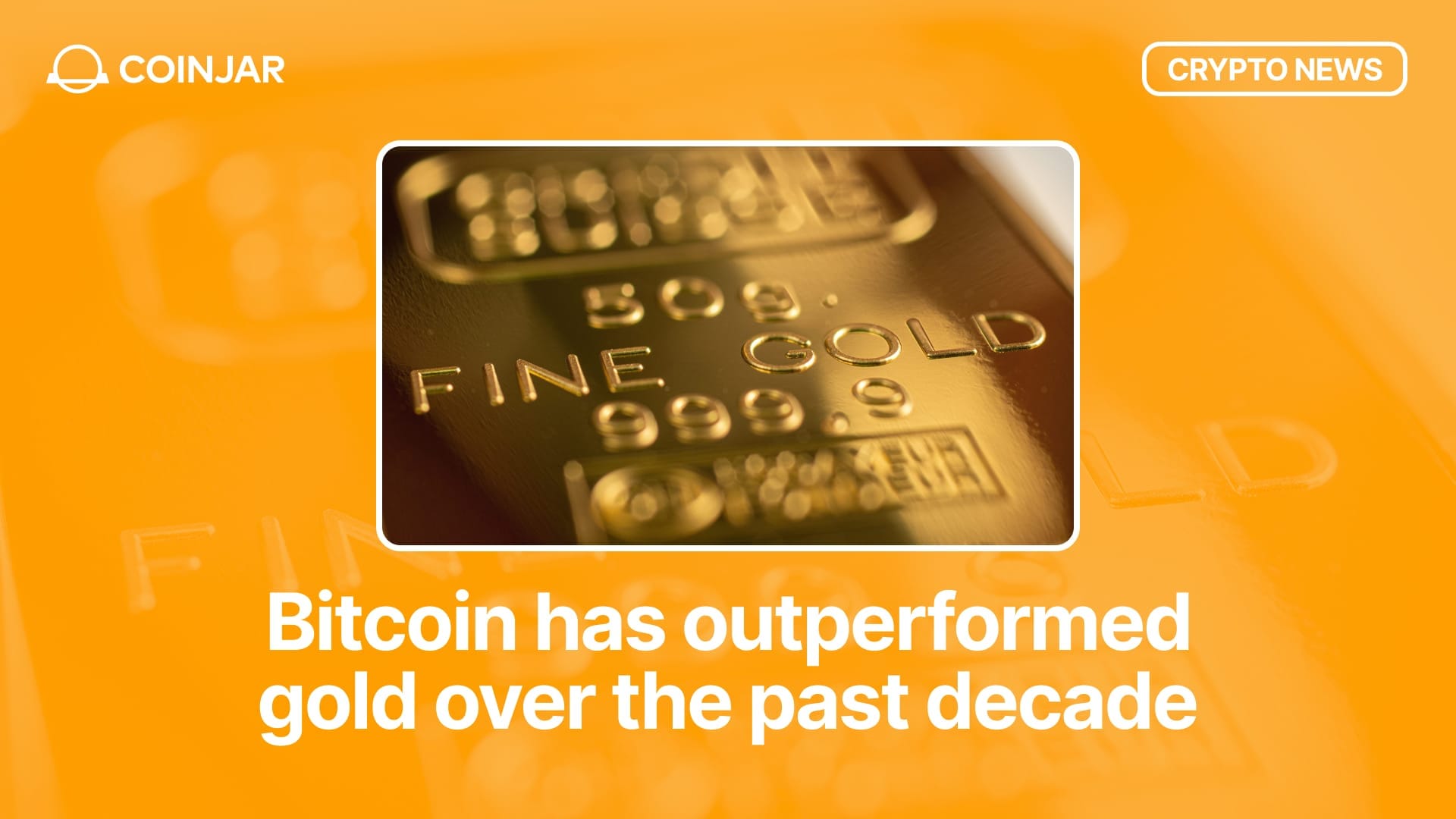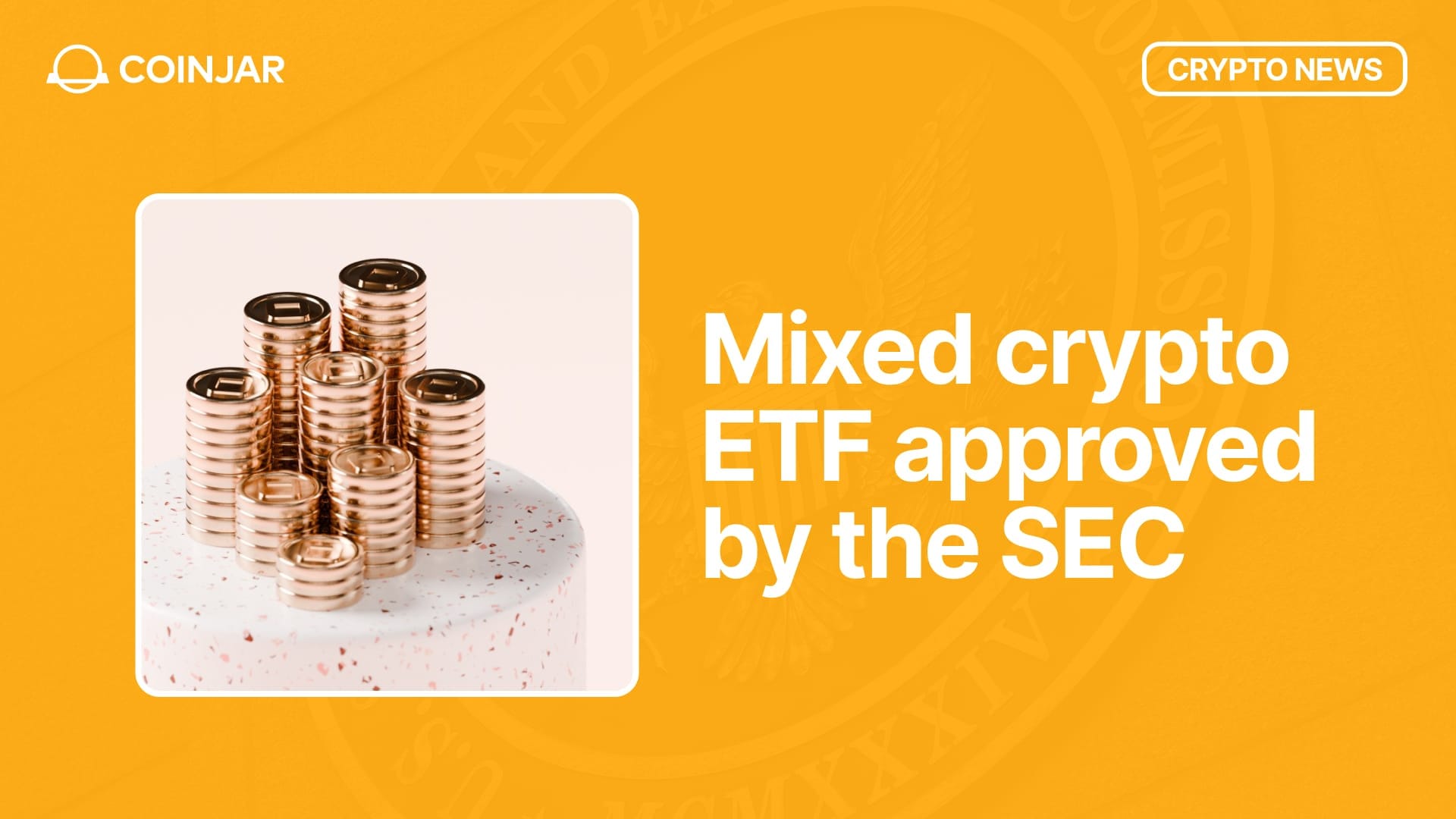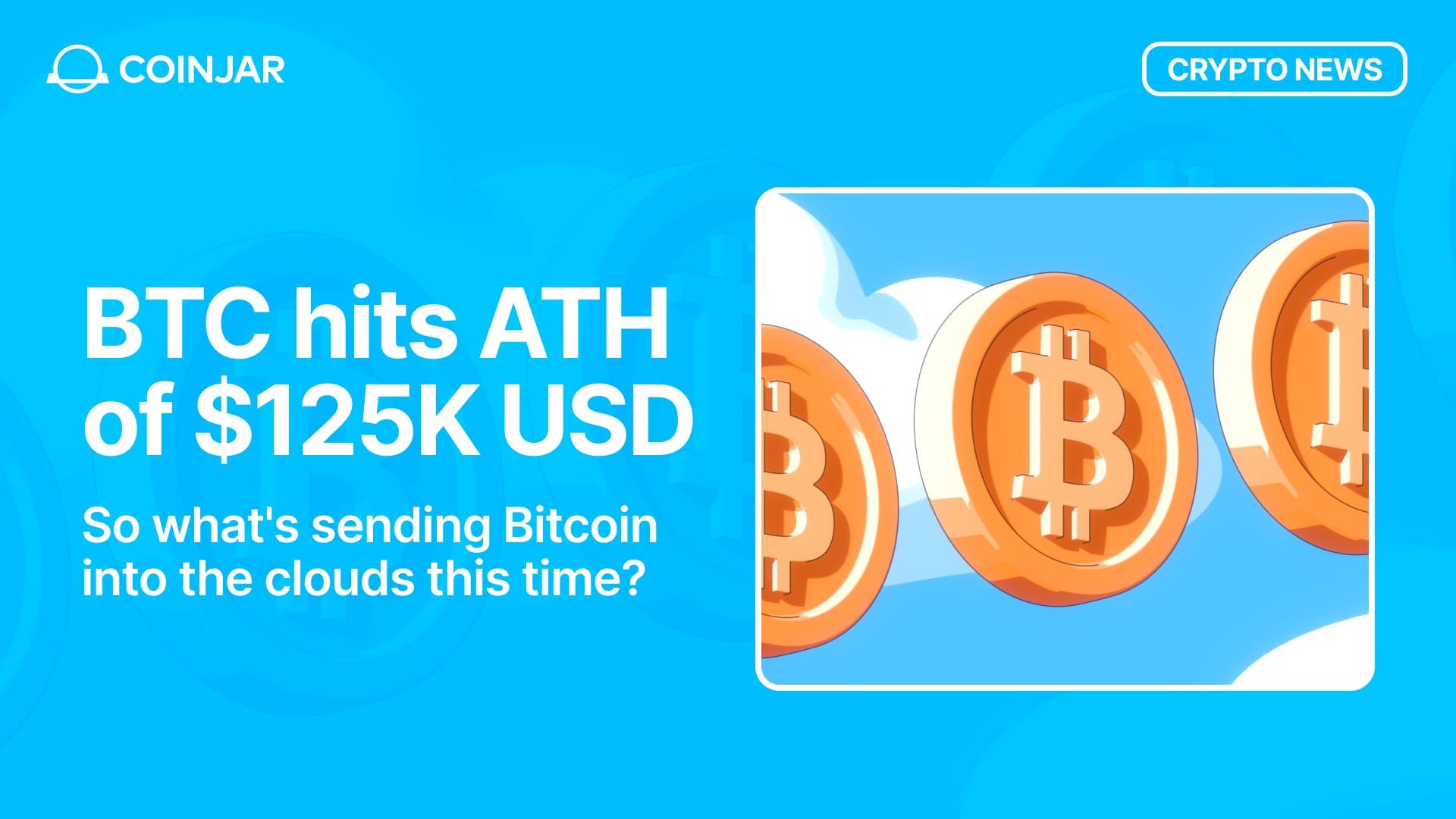Get $20 in free Bitcoin when you sign up and buy $50+ in crypto before October 31, 2025. Terms apply.
Onchain: Uptober is here
October 8, 2025
Share this:

Happy BTC all-time high last weekend to all those who celebrate. That's not the only thing that happened.
Story One
Adopting the best of TradFi?
Have you ever had your banking app tell you that you ordered $150 worth of chicken at Nando's at the other end of London? Happened to me once. Wasn't me, so I instantly blocked my card and got the transfer reversed.

Anyone who has ever experienced sending money to the wrong address or having their cards hijacked can appreciate the power of such a setup. Yet, despite millions of dollars being lost in crypto, reversible transactions remain largely untouched.
It makes sense. In TradFi, you have legal frameworks and institutions that'll settle any disputes; in crypto, there's no such thing. It also stands in inherent tension with the idea of immutability.
Nevertheless, for mass adoption, reversibility is a sexy feature. Who better to bring it up again than Circle, the stablecoin issuer whose entire business is more Fintech than crypto? Their team is considering the possibility of enabling reversible transactions.
Supporters of reversibility point to benefits for scam victims, while critics highlight that it'd be nearly impossible without centralizing power. ICYMI, Circle isn't decentralized to begin with, so I wouldn't worry too much there.
Takeaway: Whatever you think of Circle's business, at least they are aware of the problems faced by ordinary people when managing their finances. In that, they're ahead of the majority of loud people on CT.
Story Two
All good things come in threes
That's a German saying originating in the Middle Ages, used to justify when things happen thrice. Don't be fooled, though; not all such things have to be good. Take Abracadabra, a DeFi protocol and issuer of a stablecoin called Magic Internet Money (MIM). Just last week, they had the third magic money is gone moment.

A hacker exploited a flaw in the protocol function, bypassing the usual solvency checks to withdraw $1.8 million worth of MIM. To obfuscate their trail, the hacker used Tornado Cash to fund and later mix the funds he'd stolen. It doesn't sound like a lot, but in relation to the total value locked of $154 million, it's also not nothing.
The good news is that none of the users' funds had been impacted. Abracadabra hasn't commented on the event yet, except to state that they have addressed the flaw and are reviewing internal processes to ensure this won't happen again.
Takeaway: It sure isn't a good look when a DeFi protocol gets exploited three times in less than two years, memetic name aside. I, for one, wouldn't feel confident parking my money there.
Story Three
Polymarket gets serious competition
The business books might have been right that the first-mover advantage is a myth, especially when the second-movers learn from your mistakes. Crypto rallied behind Polymarket during the election as one of the first crypto products to reach beyond the usual crypto user crowd. Still, there's now a serious new contender in town who's much less concerned with crypto values, and more with world domination: meet Kalshi.
Kalshi is a US-regulated business that started as a traditional prediction market, adhering to all the KYC, AML, and other due diligence requirements that come with it. Recently, however, the platform has heavily pushed into crypto, to the point of starting KOL wars to overtake Polymarket's mindshare.

The numbers speak for themselves. Last year, Kalshi held 3.1% of global prediction market volumes, a number that has shot up to 62.2%. This growth is aided by joint initiatives with crypto networks such as Base and Solana to give out grants, and integrations with Finance Bros' favorite pastime: Bloomberg Terminal.
Takeaway: I get it. In this economy, there's really not much recourse other than gambling for the average paycheck-to-paycheck labourer. Predict responsibly.
Fact of the week: If you're really into Nandos, you might want to put Manchester on your list of places to visit. It's the city with the highest Nandos-to-population density ratio. Enjoy!
Naomi for CoinJar
The above article is not to be read as investment, legal or tax advice and takes no account of particular personal or market circumstances; all readers should seek independent investment, legal and tax advice before investing in cryptocurrencies. This article is provided for general information and educational purposes only. No responsibility or liability is accepted for any errors of fact or omission expressed therein. CoinJar, Inc. makes no representation or warranty of any kind, express or implied, regarding the accuracy, validity, reliability, availability, or completeness of any such information. Past performance is not a reliable indicator of future results.
Share this:
On/Offchain
Your weekly dose of crypto news & opinion.
Join more than 150,000 subscribers to CoinJar's crypto newsletter.
Your information is handled in accordance with CoinJar’s Privacy Policy.
More from CoinJar Blog

Bitcoin Outperforms Gold over Ten Years: Here’s Why
October 9, 2025Code or gold: Why has Bitcoin outperformed gold over the past ten years, when gold was considered to be the ultimate safe harbor? Read more
Mixed Crypto ETF Approved, It’s Almost Like They're Copying us
October 7, 2025The SEC has approved spot ETFs containing a mixed bag of crypto. Will this put upward price pressure on the cryptocurrencies in the mix?Read more
Bitcoin Hits US$125K: So What's Fuelling This Crypto Jet?
October 5, 2025Bitcoin has just hit US$125k. Satoshi Nakamoto just got rich beyond anyone's wildest dreams. But what is driving this latest price surge? And will it continue?Read moreYour information is handled in accordance with CoinJar’s Privacy Policy.
Copyright © 2025 CoinJar, Inc. All rights reserved.
CoinJar, Inc. is a registered Money Services Business with FinCEN and licensed as a money transmitter, NMLS #2492913. For a list of states in which CoinJar, Inc. is licensed or authorized to operate, please visit here. In certain other states, money transmission services are provided by Cross River Bank, Member FDIC.
This site is protected by reCAPTCHA and the Google Privacy Policy and Terms of Service apply.